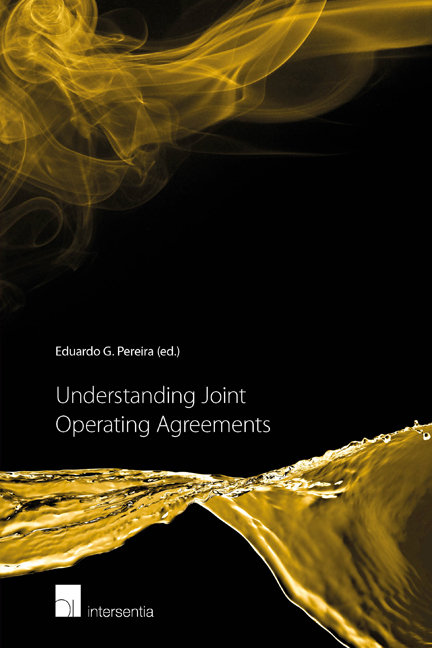PART I - CONSIDERATIONS PRIOR TO ENTERING INTO A JOA
Published online by Cambridge University Press: 15 December 2017
Summary
Participants in the oil and gas industry oft en operate on a global scale, with each region and each petroleum province having a clearly defined set of requirements and obligations. That being said, the challenges faced by these requirements are similar, and as a result it is straightforward for participants to agree upon and implement similar contracts and avoid lengthy contractual negotiations. This makes it simple to use standard JOA model forms to facilitate the negotiation of that agreement.
While most of oil and gas regions have developed their own JOA model form over time and through experience that addresses their individual needs. Different provinces and regions carry out their activities in different contexts (e.g. onshore or off shore) and are constrained by different legal systems (e.g. civil or common law), so it is thus important to note that, regardless of common threads within JOA model forms, they need to be adapted to the specific characteristics of the region. Nonetheless, all JOA model forms are based on similar principles. Standardised JOA model forms are important; they are a valuable resource for the advancement of oil and gas transactions. However, they oft en cannot comprehensively address the specific demands and factors of each negotiation and therefore a flexible approach to adjustment is key.
Since the introduction of JOAs, the world has changed. The oil and gas industry now has to face ever-increasing costs, more environmental regulation, reduced accessibility of ‘ easy resources ‘, and a greater number of competing companies. JOAs are now more frequently revised and added to because of the increased number of participants, all of whom agree on the variables that need to be addressed. This tends to benefit operations as the greater pool of knowledge and experience creates JOAs that are relevant, practical and enforceable in a given jurisdiction. The original models had few environmental constraints and were not limited by costs, and companies were much freer to explore and exploit oil and gas.
Information
- Type
- Chapter
- Information
- Understanding Joint Operating Agreements , pp. 3 - 4Publisher: IntersentiaPrint publication year: 2016
